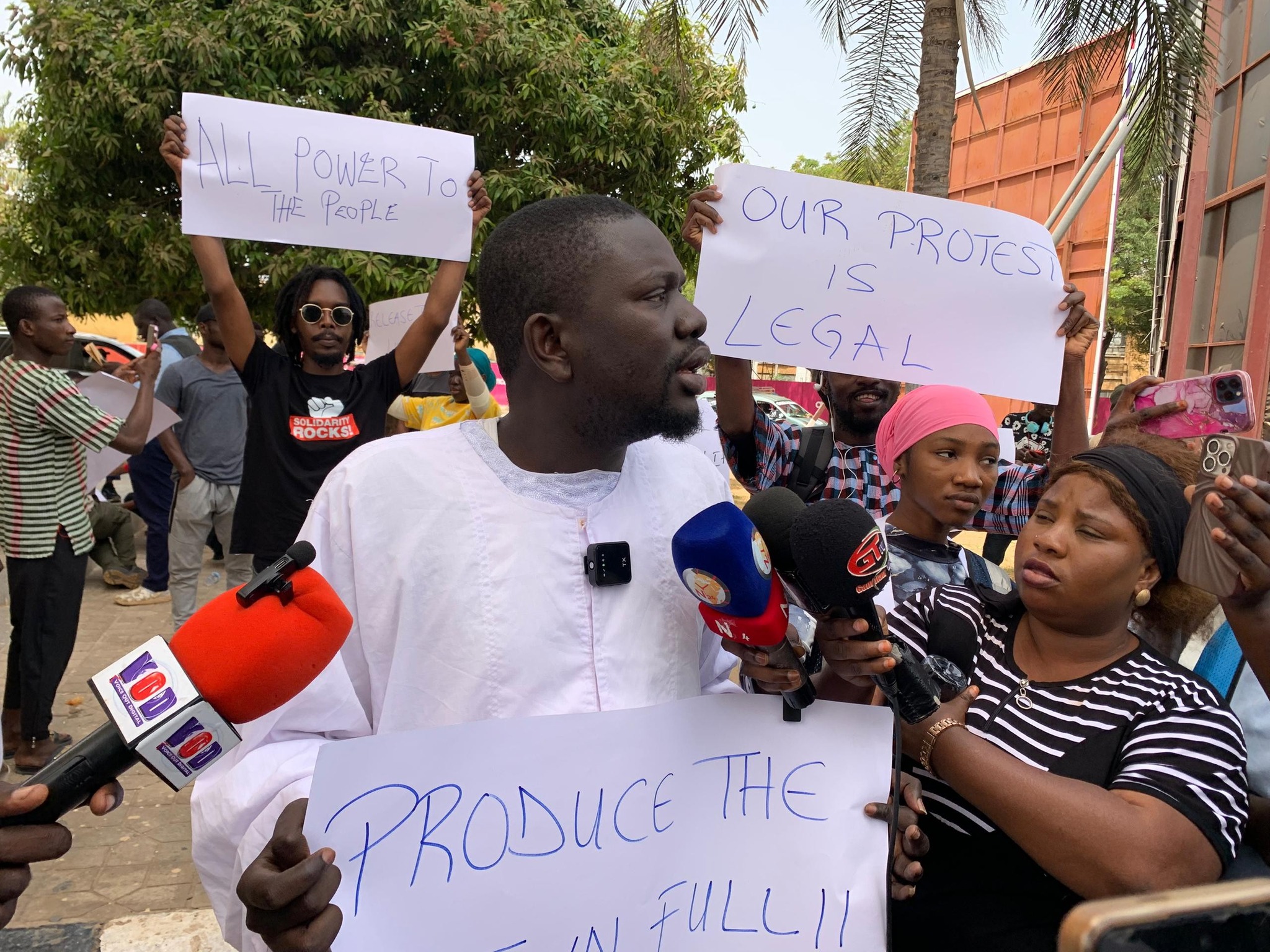Gambiaj.com – (BANJUL, The Gambia) – The Gambian government has rejected an application by the activist group Gambians Against Looted Assets (GALA) to register as a charitable organization, citing legal, procedural, and semantic concerns in a letter issued by the Attorney General’s Chambers.
Dated July 15, 2025, and signed by Alasan Jobe, Deputy Registrar of Companies “For Solicitor General and Legal Secretary,” the rejection letter outlines three principal reasons for denying GALA’s registration.
First, it argues that the group’s name violates Section 16(2)(a) of the Companies Act, 2013, which restricts names that imply national representation or government endorsement without prior approval.
While the group does not use “The Gambia,” the letter emphasizes that the word “Gambians,” as a demonym, could suggest the organization speaks for the entire nation or acts on its behalf in matters of national concern—especially given its anti-corruption agenda. This, the Chambers contends, could mislead the public or imply official backing where none exists.
Secondly, the application was found to be procedurally deficient under Section 568(2) of the same Act. Specifically, GALA submitted only one printed copy of its constitution instead of the required two; failed to include duly signed minutes of the meeting appointing those responsible for the application; and omitted a required drawing or impression of the association’s common seal.
The letter emphasized that these elements are statutory, not optional.
Thirdly, the Chambers raised concern about the use of the phrase “looted assets” in the group’s name. It argued that the wording is “presumptive and prejudicial,” implying the existence of stolen public assets without citing formal findings, court decisions, or government reports.
The letter warned that such language could be seen as defamatory or accusatory, particularly if directed at individuals or institutions without legal substantiation.
Despite the rejection, the letter struck a measured tone, praising the clarity and legality of GALA’s stated goals—including transparency promotion, citizen engagement, and public education—and encouraged the group to revise and resubmit its application.
It recommended a name change to avoid suggesting national representation and advised more neutral language, such as “transparency advocacy” or “asset recovery initiatives,” rather than “looted assets.”
But GALA has pushed back forcefully.
In a press release issued shortly after the rejection, the group accused the Attorney General’s Chambers—and specifically Registrar Marie Gomes—of obstructing their registration for political reasons. They claimed to have complied with all legal requirements and rejected the government’s interpretation of the Companies Act, noting that the law restricts “The Gambia” as a name, not “Gambians.”
According to GALA, they were informally told that the name alone was grounds for rejection, a claim they see as a pretext to silence civil society advocacy.
“We were trying to exist as a legal entity in order to pursue diplomatic means to solving problems,” GALA stated. “But it is clear that this government does not understand any other language except protests. This time, the consequences could be severe because GALA is going to exist, with or without the state’s approval.”
A Tense Test of Civic Space
The clash reflects a broader tension between the post-Jammeh government’s stated commitment to transparency and its handling of civil society organizations, particularly those focused on accountability and corruption.
GALA, formed to advocate for the recovery of allegedly misappropriated public wealth, positions itself as a watchdog group committed to public interest—not a government opponent. But the name it chose and the tone of its advocacy appear to have triggered institutional sensitivities.
Some legal analysts note that while the government’s concerns about procedure and language are not entirely unfounded, the handling of the matter could send a chilling signal to other civic groups engaged in anti-corruption work.
Others argue the case reveals a lack of tolerance for independent actors who operate without state oversight or political alignment.
For now, GALA remains unregistered, and its next move is uncertain. Whether it chooses to revise and resubmit or operate informally—as it has threatened to do—the confrontation has already raised significant questions about the openness of Gambian democratic institutions to dissent, civic advocacy, and the right to organize independently.
As the government invites a revised application and the group rejects compromise, the legal and symbolic battle over who gets to speak for “Gambians” and in what terms may only be beginning.










